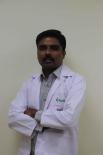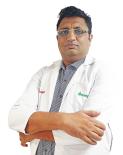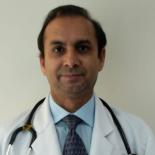About Geriatric Medicine
Welcome to the Geriatrics Department at Fortis Hospitals
As we journey through life, each passing year brings its own set of challenges and triumphs. At Fortis Hospitals, we understand the unique healthcare needs of our senior community. Our Geriatrics Department is dedicated to providing comprehensive and compassionate care tailored to meet the specific needs of older adults.
Who We Are
Our Geriatrics Department comprises a team of highly skilled healthcare professionals specializing in the care of older adults. From board-certified geriatricians to nurses, therapists, and social workers, each member of our team is committed to promoting the health and well-being of our senior patients.
What We Offer
At Fortis Hospitals, we offer a wide range of services designed to address the complex healthcare needs of older adults. Our comprehensive geriatric care includes:
Geriatric Assessment: Our multidisciplinary team conducts thorough assessments to evaluate the overall health, functional status, cognitive function, and psychosocial needs of our senior patients.
Chronic Disease Management: We specialize in managing chronic conditions commonly seen in older adults, including diabetes, hypertension, heart disease, arthritis, and more.
Falls Prevention: We offer comprehensive assessments and interventions to reduce the risk of falls and prevent injuries among older adults.
Memory Care: Our experts provide diagnostic evaluations and personalized care plans for patients experiencing memory loss or cognitive decline.
Medication Management: We carefully review and manage medications to minimize adverse effects and drug interactions, ensuring optimal treatment outcomes.
Rehabilitation Services: Our rehabilitation team offers physical therapy, occupational therapy, and speech therapy to help seniors regain independence and improve their quality of life.
Palliative Care: We focus on providing comfort and relief from symptoms for patients with serious illnesses, addressing physical, emotional, and spiritual needs.
End-of-Life Care: Our compassionate team provides support and guidance for patients and families facing end-of-life decisions, ensuring dignity and comfort during this challenging time.
Patient-Centered Care
At Fortis Hospitals, we believe in patient-centered care that respects the individual preferences, values, and goals of our senior patients. We take the time to listen to their concerns, understand their needs, and involve them in decision-making regarding their healthcare.
Our Approach
Our approach to geriatric care is holistic, addressing the physical, emotional, and social aspects of aging. We focus not only on managing medical conditions but also on promoting overall health, independence, and quality of life for our senior patients.
Why Choose Fortis Hospitals
When you choose Fortis Hospitals for your geriatric care needs, you can trust that you are receiving the highest quality of care from a team of experts dedicated to your well-being. With state-of-the-art facilities, advanced technology, and personalized attention, we strive to make your healthcare experience as comfortable and rewarding as possible.
Contact Us
If you or a loved one are in need of geriatric care, we invite you to contact the Geriatrics Department at Fortis Hospitals. Our team is here to support you every step of the way on your journey to healthy aging.
Our Team of Experts
View allRelated Specialities
Other Specialities
Geriatric Medicine
-
Explore Hospitals for Geriatric Medicine
Fortis Escorts Hospital, Jaipur Fortis Hospital CG Road Bangalore Fortis Hospital BG Road Bangalore Fortis Hospital, Noida Fortis Hospital, Rajajinagar, Bengaluru Fortis Hospital, Shalimar Bagh, New Delhi Fortis La Femme, Greater Kailash II, New Delhi Fortis Hospital - Greater Noida Hiranandani Fortis Hospital, Vashi, Mumbai Fortis Memorial Research Institute, Gurgaon -
Explore Doctors for Geriatric Medicine by Hospital
Doctors in Fortis Escorts Hospital, Jaipur Doctors in Fortis Hospital CG Road Bangalore Doctors in Fortis Hospital BG Road Bangalore Doctors in Fortis Hospital, Noida Doctors in Fortis Hospital, Rajajinagar, Bengaluru Doctors in Fortis Hospital, Shalimar Bagh, New Delhi Doctors in Fortis La Femme, Greater Kailash II, New Delhi Doctors in Fortis Hospital - Greater Noida Doctors in Hiranandani Fortis Hospital, Vashi, Mumbai Doctors in Fortis Memorial Research Institute, Gurgaon


















